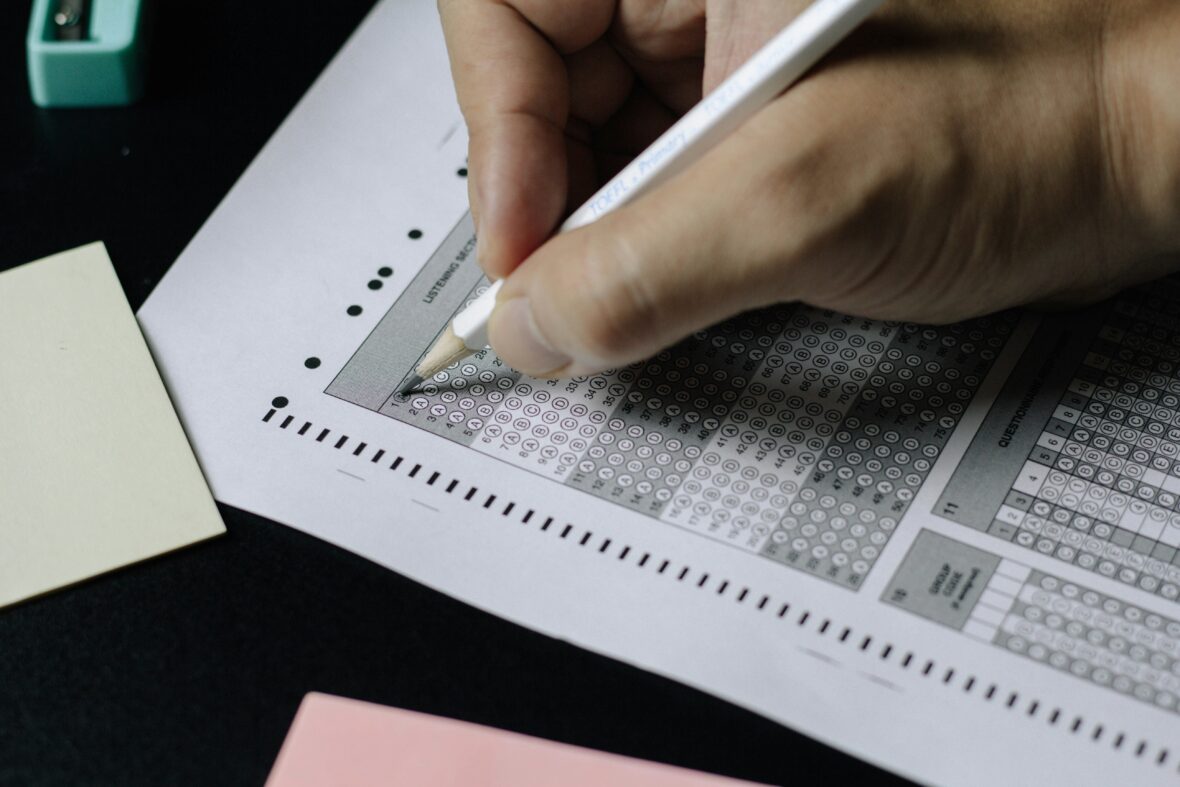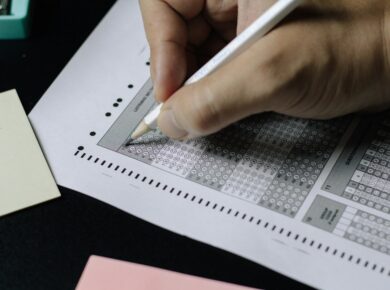When going for an interview, having to answer objective questions is quite fun, but at the same time, quite demanding. Whether it is a job test, an entrance test for schools or colleges, or any other test like the certification test, solutions to objective-type questions are mandatory.
These questions are used easily and effectively in a fast and succinct way to establish how much a candidate knows concerning particular issues and are commonly applied in interviews and examinations.

In this blog post, readers will learn about the meanings of solving objective questions, lists of questions, examples from various domains, and ways to improve answers.
Why are interview questions mainly objective?
Measuring Core Knowledge
Achievement tests require candidates to answer numerous objective questions that are intended to measure their mastery of certain basics in the given course.
While the subjective questions may be answered with the help of assumptions, objective questions call for specific answers, which constitute your comprehension of the material.
For instance, you can be given a specific question during the finance interview, such as the calculation of the NPV of a given project, which is an activity that demands the financier’s knowledge of certain principles.
Testing Problem-Solving Abilities
The immediate implication that most objective questions make for the actual assessment is that most questions are designed to see not only your factual recall but problem-solving ability.
These questions usually present problems and situations where a student would be expected to provide logical conclusions, as well as solve some mathematical problems and apply theoretical knowledge to real-life situations.
For example, in a marketing interview, the interviewer may provide a hypothetical market research case and then would like to know the most suitable technique for analysing consumers’ information.
Enhancing Speed and Accuracy
Ordering one’s ideas is very crucial in interviews and examinations. Objective questions, which are normally framed for a limited period, help to increase your speed and precision. Through these questions, the ability to think and act fast is developed, which is especially useful in a constrained environment.
For example, when one is competing for a scholarship via written examination, one may be required to answer several questions, most of which are mathematical, cs within a limited amount of time, so efficiency will be very essential.
Identifying Strengths and Weaknesses
Exercises in objective questions enable the candidate to discover strengths and weaknesses through time, hence improving his/her time.
Self-assessing beforehand is important for the targeted preparation, which would enable the student to spend more time on the subject areas that need correction. For example, if you have weak numerical ability, you can focus on studying questions related to statistical analysis.
Building Confidence
Of all the variables influencing the interview performance, confidence takes up a significant position. Anticipating possible questions also makes you more prepared when you are going for the interview because you are already sure of the kind of questions to expect.
Developing objective questions contributes to the reduction of an aspect of fear resulting from the unknown, thus approaching the interview more prepared and confident.
Some aspects of objective questions in different fields are illustrated as follows:
Below are some examples of objective questions from various fields that you might encounter during your interview preparation:
1. General Aptitude
Question: A train moves at the speed of 60 k/hr; in what time will it take to travel a certain distance, how long is 2 hours? How long will it take to cover the distance at the rate of 80 km/h?
Answer: 1. 5 hours. We now use the formula time = distance/speed to determine the time taken while moving at the speed of 80 km/h. Time taken = 120/80 = 1 hour. 5 hours.
2. Logical Reasoning
Question: The ground itself is not wet, but damp is present, and based on the degree of exposure to steam and the kind of floor used, there would be small water droplets. What can we conclude?
Answer: Downpour is not experienced at the moment. That is even a perfect illustration of what in logic is known as the contrapositive.
3. Financial Analysis
Question: If today earns $800 and $1,200 is receivable 3 years in the future, assuming the discount rate is 5%.
Answer: $863. 84. (Using the present value formula: Where the present value of money PV is given by the formula PV = FV / ( 1 + r)^n; given that FV = 1000, r =0.055, n = 3. )
4. Human Resources (HR)
Question: Which is not an example of an employee benefit?
- Health Insurance
- Paid Vacation
- Stock Options
- Corporate Governance
Answer: Corporate Governance. Corporate governance refers to the framework through which corporations are managed, which has nothing to do with employees’ welfare.
5. General Knowledge
Question: Name the country called the Land of the Rising Sun.
Answer: Japan. It is well known that the name for the country that is Japan is the Land of the Rising Sun.
On the other hand, the following are the advantages of practising in objective questions:
Structured Learning Approach
Answering the objective questions is a good tool for approaching the knowledge and revising it. You can always devise a plan to follow, which will enable you to prepare in a given sequence, and you can be sure that you cover most, if not all, areas of the particular topic.
Immediate Feedback
The major advantage of objective questions is that they can be easily corrected, and the corrections can be given right away. This instant response eliminates guesswork, and therefore, you correct the mistakes, enabling you to understand the content thoroughly. This is especially helpful when you are studying by yourself; you require a way to check how you are performing.
Improved Retention
Whenever I had time, I would take my time to try objective questions on my own; this just made me refresh my memory most of the time. Repetition, on the other hand, is aimed at making sure that the information required during the interview is stored in your long-term memory in different forms.
Focus on Key Concepts
Structurally, objective questions are a category of questions that are formulated to assess the core of a subject. The questions thus help one gauge their grasp of the most important concepts that are commonly tested in interviews and exams, thus aiding the efficientorganisationn of study.
Enhanced Analytical Skills
This set of problems enables you to develop efficient, practised, and accurate ways of approaching and solving most problems. This skill is very important not only in the case of an interview but also in day-to-day working scenarios where you have to make fast decisions with the information you have at your disposal.
Reduced Exam Anxiety
Realisation of the common format and types of questions that may be asked during an interview can go a long way in reducing stress levels. This way, while facing the interview, the mind will be free from any negative thinking, and the person can do his or her best.
Strategies for Effective Practice
Diversify Your Resources
Objective-type questions cannot be limited to a single method when preparing for them, and therefore, the use of multiple study resources is very crucial.
Correct and efficient books, online practice tests, combined practice on mobile, and educational websites provide a sufficient amount of questions that might help to prepare for all necessary topics.
The rationale for diversifying the resources is to have different kinds of questions so that the interviewer is not taken aback by something new as he or she goes through the interview process.
Simulate Exam Conditions
To improve the conditions of the actual interview or exam, it is necessary to replicate the circumstances as much as possible.
This involves practising while solving questions and ensuring that you set a time limit while solving the questions and practising in a noiseless environment where there are no distractions.
Practising under exam conditions allows one to develop endurance and learn how to allocate his or her time during stress.
Review Mistakes Thoroughly
Whenever you come across a question and find you got it wrong, spend time and find out why it is so. Reread the explanation, and go through the related concepts again; this will help you, in case you need to turn to other sources to strengthen your knowledge.
That way, it also avails an opportunity for you to correct your wrongdoings and ensure that they do not recur in the future.
Regular Practice and Consistency
It is very important to be very consistent when doing objective questions. Engage in regular rehearsals rather than cramming; you can set part of the day or week aside to rehearse. Recurrent practice of the strategies aids in recalling them, affirms you, and keeps you alert during your interview period.
Group Study and Discussion
Joining study groups is helpful as the main focus is the mutual exchange of knowledge and ideas on questions and possible solutions.
Group study sessions allow you to bring in other people’s perceptions and clear your doubts, as well as teach you. It may add to your comprehension and make learning much more fun if done together with your colleagues.
Objective questions intend to confirm your factual understanding and aptitude, but are also a vital part of many interviews and examination methods where practical application of knowledge, logical thinking, and stress compatibility are being measured.
As you apply yourself in the course of practising and adhering to the strategies mentioned in this post, you can expect to gain more speed, accuracy, and most importantly, confidence.
Conclusion
Just to recall, here are some tips to bear in mind: preparation is the name of the game when it comes to acing an interview.
Here, they say practice makes perfect, and the more you rehearse, the more familiar you become with the content and the better you shall do when it is time to do it in a real competition.
Thus, devote enough time and effort to complete the objective questions, review one’s weak criteria, and go to the interview with the anticipation that one can easily tackle all problems he or she is confronted with.
Have the best of luck with your preparation, and may you get the desired outcomes in your interviews. You can read further similar posts on our examination page of the site.










